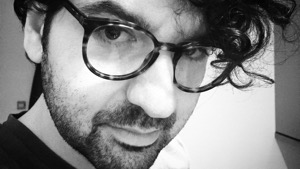WiP - Paolo Santorio / Assertion and the absence of fact

WiP - Paolo Santorio / Assertion and the absence of fact
On March 26, Paolo leads our Work-in-Progress meeting with a discussion of "Assertion and the absence of fact," abstracted below.
Dilip Ninan has recently pointed out that some assertions about the future are easier to make than corresponding assertions about the past. I show that Ninan's puzzle is part of a broader pattern, and is linked to so-called counterfactual skepticism. The basic phenomenon, properly characterized, is this: "will"- and "would"-claims are somehow easier to make than some corresponding nonmodal claims. This holds even when the relevant nonmodal claims have the same, or even higher probability. Why is that? I argue that the phenomenon connects to indeterminacy. "will" and "would" pick out a possibility, but it is generally indeterminate which possibility they pick out. The proper solution to the puzzle involves a theory of how we can assert claims with indeterminate truth value.

